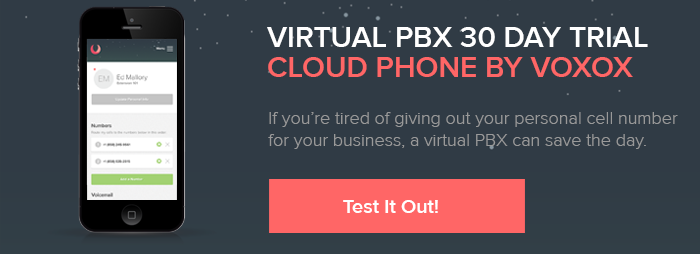Those of you running your own non-employer business understand that at any given moment you might be your company’s billing, sales and marketing departments—all at once. As a sole proprietor you simply don’t have the option to turn a task over to a coworker. But just because every department of your company is actually just you, it doesn’t mean you have to look small-time to the outside world.
 Photo Courtesy of Flikr User Sebastiaan ter Burg
Photo Courtesy of Flikr User Sebastiaan ter Burg
A small business virtual phone can provide the same features and functionality offered by traditional wire-based systems including easy-to-set-up extensions for your departments. With this technology all you need is a mobile phone to get your business looking like a Fortune 500 company.
For example, let’s say a prospect or new client calls your business specific line—another feature of a small business phone service—with a billing question while you’re in the tunnel at Grand Central Station or on an airplane to Los Angeles. Because of your location, you’re unable to answer the call. You are unable to answer the call. With a small business virtual phone, your customer is professionally greeted and presented extension options for each division of your company, giving you big business presence that projects an air of credibility.
No matter what industry you are in, competition is stiff in today’s congested marketplace. According to a customer service survey by Zendesk, 55 percent of customers said they switched to a different company for a product after having a bad customer experience, which can include something as seemingly insignificant as an unprofessional interaction with a company’s phone service.
You’ve worked tirelessly to build a great product or service and to generate leads and the last thing you need is to forfeit lose out on business because your phone system makes a bad impression. As the saying goes, “you never get a second chance to make…” well, you know.







